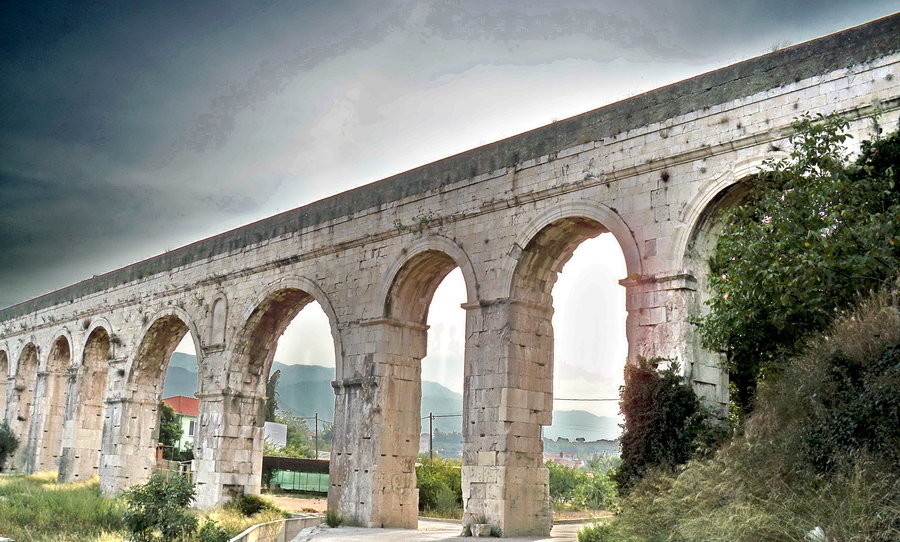
What can we learn from a Roman Aqueduct?
I am spending the summer with my family in the city of Split in the Dalmatian coast of Croatia, my wife is from there and our kids love going to the beach everyday and also their summer camp. The natural wonders of the city make Split a very special place for our family, the Croatian coastline is absolutely stunning.
One of the most underrated, and in my opinion not much appreciated features of the area is a Roman aqueduct, built in the 3rd century AD by the emperor Diocletian to supply water to the city and his palace. To me what is absolutely amazing about this structure is that its almost 2,000 years old and its still standing! not only that, its still being used to supply water!!! can you think of any man made structure that its still standing and still working after almost 2,000 years? I cant think of many but the Romans were absolutely genius architects and engineers, even if they did not have the math and construction technology we now have.
But, what made the Roman engineers so successful? how come their structures including aqueducts and roads are still standing and some of them still in use after thousands of years? According to Nassim Nicholas Taleb its all about Skin in the Game. In his book of course titled "Skin In The Game" he mentions that Roman architects and engineers were responsible for their projects even with their lives. If a building or aqueduct or house failed or crumbled because of a construction mistake, guess what was the punished to the engineers? Not a very pleasant one to say the least. But look at the result,s the engineers knowing that they would suffer a loss or punishment for their mistakes made absolutely sure that there were not going to be any mistakes in their construction projects, the quality had to be the highest in everything they did, they wanted to do the job right and be successful, because literally their skin, their lives were on the line.
We don't have to go that far as to punish people with death if they fail, but I totally sign up to Nassim Taleb's theory of Skin In The Game and that society will be much better if more individuals are responsible for their actions and decisions and share in both the upside and the risks on the downside. A perfect example, of not having skin in the game and sharing only the upside and not the downside are the bankers during the financial crisis. Nassim Taleb in his book tells the story of a banker who made over $120M in bonuses and then his bank failed and it had to be bailed out by the government, but he did not have any downside, he kept his bonus and laughed all the way to the bank, while the risks and downside to the country's and world economy were spread to the masses (il popolo). I don't think this equation is right or sustainable.
As an entrepreneur I have come to understand the importance of having skin in the game in every of our ventures. Knowing that you are responsible for your decisions and actions in your business as well as life keeps you focused and centered in the task at hand, but most importantly it gives you the energy to endure and to keep going when times get tough, and why is that? because you have already invested time, which you can't never get back, in my opinion time is the ultimate cost, and also you have invested capital. All those ingredients of cost add up to Skin in the Game. If you win you share the upside if you fail you also participate in the downside.
Over the last 18 years we have started several companies and exited a few of them, in 2011 after a number of exits under our belts with my long time partners Matias de Tezanos, Julio Gonzalez-Arrivillaga and Diego Fernandez we decided to start PeopleFund and invest in tech entrepreneurs, the rational was to invest in entrepreneurs with skin in the game in their ventures and whom we could learn something from. The rational has worked very well and we are still backing skin in the game entrepreneurs, and learning from them everyday and enjoying the ride.
I think that society will be much better off if all of us have more skin in the game, and we will be able to build long lasting value just like the Romans did.
Founder and CEO Apoyo Seguro / Chief Executive Officer / Leadership / Board Member / Advisory Board / Consultant / Business Transformation / Change Agent
5yFocusing on lifetime value (long lasting) equally for customers and shareholders is the only way to ensure sustainable loyalty